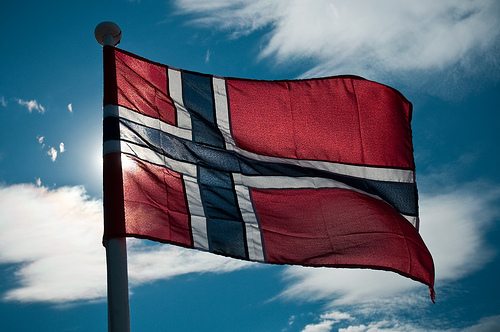

Economy
Major flaws in $760bn oil fund’s approach to climate change and sustainable investment
The ethical footprint of the world’s largest sovereign wealth fund is “severely limited” according to a major new review of its investment strategy.
The Government Pension Fund of Norway (GPF), also known as the ‘oil fund’, owns around 1.25% of the world’s stocks and is valued at a reported $760 billion. It is owned by the state and funded primarily by surplus wealth from the country’s petroleum industry.
But an investigation by the thinktank Re-Define, commissioned by Norwegian Church Aid, has found what it calls “serious deficiencies” in the fund’s investment strategy. Researchers claim it is lagging behind many of its peers on a number of issues, including ethical investment and sustainability.
The fund’s currently policy sees it exclude tobacco firms and manufacturers of bombs and nuclear weapons from its portfolio. It has reportedly decided against investing in such companies as Walmart, Boeing and Lockheed Martin on ethical grounds in recent months.
Furthermore, Norges Bank Investment Management (NBIM), which manages the GPF, says it engages with companies it invests in on six specific areas, including climate change, children’s rights and water management.
But investors and campaigners have argued that because of its massive size, the GPF should be doing much more in this area. The Organisation for Economic Co-operation and Development (OECD) has criticised the fund in the past for lacking a strategy to deal with violations of human rights by companies in which it invests.
The Re-Define report describes the “ethical footprint” of the GPF’s investment policy as “severely limited” for three reasons.
It claims its view of sustainability and responsibility is too narrow; has limited capacity to engage with the firms it invests in; and misses “huge opportunities” by mostly screening out unethical industries, instead of focusing on positive selection of stocks.
Despite being one of NBIM’s six areas of engagement, Re-Define describes GPF’s attitude to climate change as “schizophrenic”.
Around 10-15% of the fund’s overall portfolio is invested in the oil and gas sector – amounting to as much as $114 billion. The WWF reported in June that GPF was invested in 147 of the 200 companies in the world that hold the largest reserves in fossil fuels.
Despite co-financing a report in 2011 by Mercer, which looked into climate risk and asset allocation, Re-Define accuses GPF of “ignoring” the conclusions of the study.
Sony Kapoor, author of the report, said, “Unless it changes its current strategy and invests heavily in illiquid assets in faster growing developing economies, the GPF will continue to fail to deliver on its target 4% rate of return.”
He added, “The GPF sharply underperforms many of its peers directly as a result of its refusal to be strategic, buy in illiquid assets or invest much in developing countries.”
Further reading:
Major Norway oil fund urged to get ‘up to speed’ on responsible investment
Norwegian pension fund rejects OECD ethical guidelines
Norwegian pension fund divests from ‘financially worthless’ fossil fuel firms


 Environment12 months ago
Environment12 months agoAre Polymer Banknotes: an Eco-Friendly Trend or a Groundswell?

 Features11 months ago
Features11 months agoEco-Friendly Cryptocurrencies: Sustainable Investment Choices

 Features12 months ago
Features12 months agoEco-Friendly Crypto Traders Must Find the Right Exchange

 Energy11 months ago
Energy11 months agoThe Growing Role of Solar Panels in Ireland’s Energy Future






























